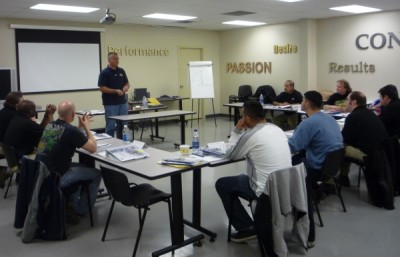Sales and marketing experts often say that when selecting a product and/or service, most consumers base there decision to buy on three things; price, time, and quality. If you’re anything like me when faced with type of decision, you’ll probably say “I’ll take a dozen of each.” Trouble is, you can’t have all three so you will need to pick two.
 Almost any product/service provider will promise that they can alter the laws of the universe and deliver more; the highest quality possible, in the least time available, all at a price just north of free, but the reality of the situation is that it just can’t be done. You don’t get more for less, you get what you pay for, there’s no such thing as free lunch, etc. (insert other cliché phrase here).
Almost any product/service provider will promise that they can alter the laws of the universe and deliver more; the highest quality possible, in the least time available, all at a price just north of free, but the reality of the situation is that it just can’t be done. You don’t get more for less, you get what you pay for, there’s no such thing as free lunch, etc. (insert other cliché phrase here).
To bring the discussion around to training, you really need to perform some due diligence and separate what you want from what you need because if you leave it to the provider to decide, they will sell you whatever it is they have – which may not be what you want or need.
With that in mind, let’s look at some preliminary due diligence items you may want to consider when selecting a mobile equipment training supplier.
Integrity – this is a very intangible quality that can usually only be quantified through historical context. In other words; what kind of track record does the supplier have? Do they have a history of more than say, five years? Have you or any of your colleagues ever heard of them and if so, what’s the word on their reputation?
Value – What are you getting for your money? There is a big difference between price and value. The price of something is merely the dollar amount you pay whereas value represents what you actually get for the price. When it comes to mobile equipment operator or trainer programs, items such the quality, functionality and availability of training aids and materials, post program technical and administrative support, staying in touch with ongoing updated information and just being there when you call are all significant value added considerations.
Expertise – Do their people know their stuff? And I don’t just mean the trainer that delivers the program but the administrative assistant you talk to on the phone about logging you operator information or the sales rep that advises you on what DVD would best suit your needs.
Support – This was mentioned earlier as a component of value, and what a component it is. Your relationship with a training supplier should begin when the delivery of the training ends. If your supplier is a one person show or a fly-by-night operation, they may be unable to give you the support you need when you need it.
All of the above noted items should be taken into consideration in addition to the basic obvious advantages of price, time, and quality. Only you can decide which is more or less important to you.
Some employers make it abundantly clear that they are not impressed with the fact that they have to spend even a dime on training and feel that the applicable regulations mandating the training are nothing short of government extortion. Training is something they hold their nose and do because they have to and prefer it be done as quickly and cheaply as possible. They often choose to take their chances by flying under the regulatory radar and “pay the fine” if they get caught. These types of people put a premium on price and time and if forced, will actually pay more for a quicker program, which is really a shame – especially for the people that work there. These are also the kind of clients that I leave tracks getting away from in the interest of maintaining quality and integrity; I simply can’t do what they want because I don’t have what they want.
At the other end of the spectrum is the safety-at-any-cost employer which you would think is a suppliers dream but more often is not. Why? Unrealistic expectations. Employers that have bags of money to throw at whatever issues they have often feel that the spending of money equates to safety. In reality, the knowledge and skill gained through training is only useful if an honest effort is made to implement and enforce it on an ongoing basis. These employers can’t understand why they are still having accidents after spending all of this money and often expect the training provider to take responsibility for it. A reputable provider will certainly step up and take responsibility for the training delivered but usually has no control over if and how it is implemented or maintained afterward.
In the end, be wary of the training supplier who claims to be all things to all people and be just as wary of what it is you ask for from a supplier. You may not always get what you want, but should always get what you need. The good ones will make it easy for you to decide which is which.
Rob Vetter
Director of Training
IVES Training Group
Did you enjoy this article? Sign up for our newsletter to receive more like this!